Bridging the Gap: Businesses supporting long-distance relationships.

More apps are rolling out features that allow us to do typically in-person bonding activities with our loved ones, such as watching videos and playing games together. With evolving restrictions in the ongoing pandemic, there is much potential for apps to introduce creative ways to forge meaningful relationships and convey affection despite the physical distance. As many of us have recently been spending more time with our loved ones virtually, we wanted to better understand what more can be done to support families and couples living apart.
In fact, there seems to be opportunities for businesses to do more for this special segment that has considerable presence in Southeast Asia. In a regional survey with N=7,800 respondents (N=1300 per country in Indonesia, Malaysia, Philippines, Singapore, Thailand and Vietnam), we found that at least 1 in 2 across all markets, except for Singapore, said that they are currently in a long-distance relationship with an immediate family member or partner.
The term’ long distance’ (LDR) in this study refers to being apart from one another, where they were unable to meet in-person in the past year.
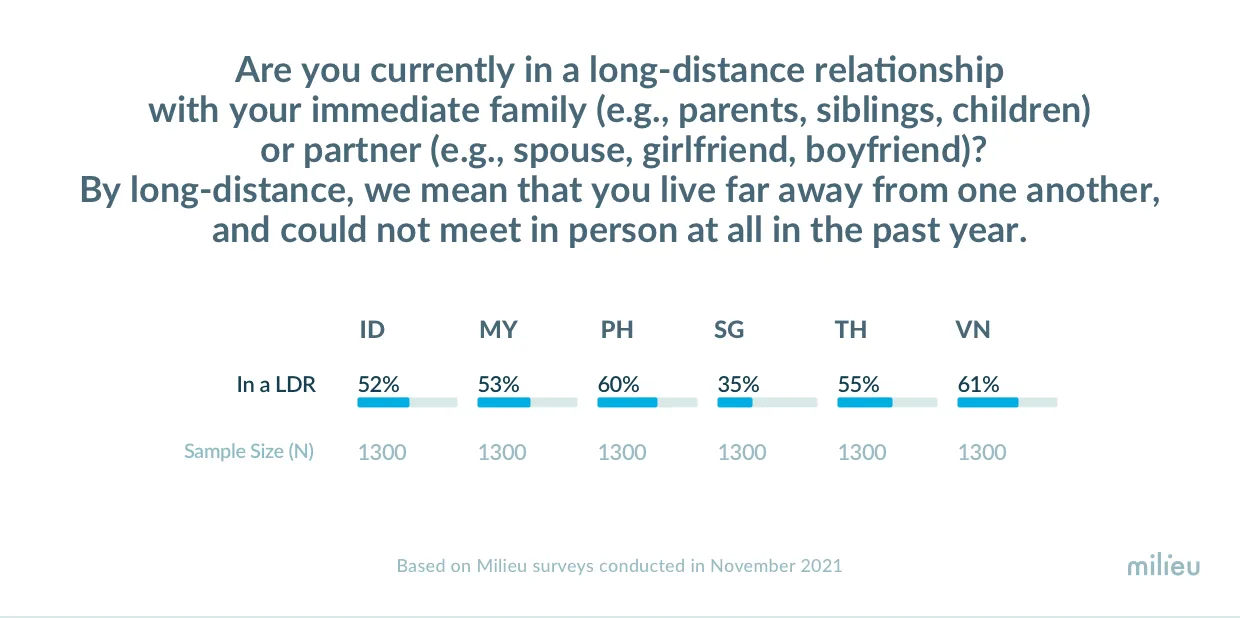
Notably, about half of those in Malaysia, Philippines, and Singapore who were in LDR expressed difficulties in bonding with their loved ones in the past year. So, what are the opportunities to help LDR couples and families?
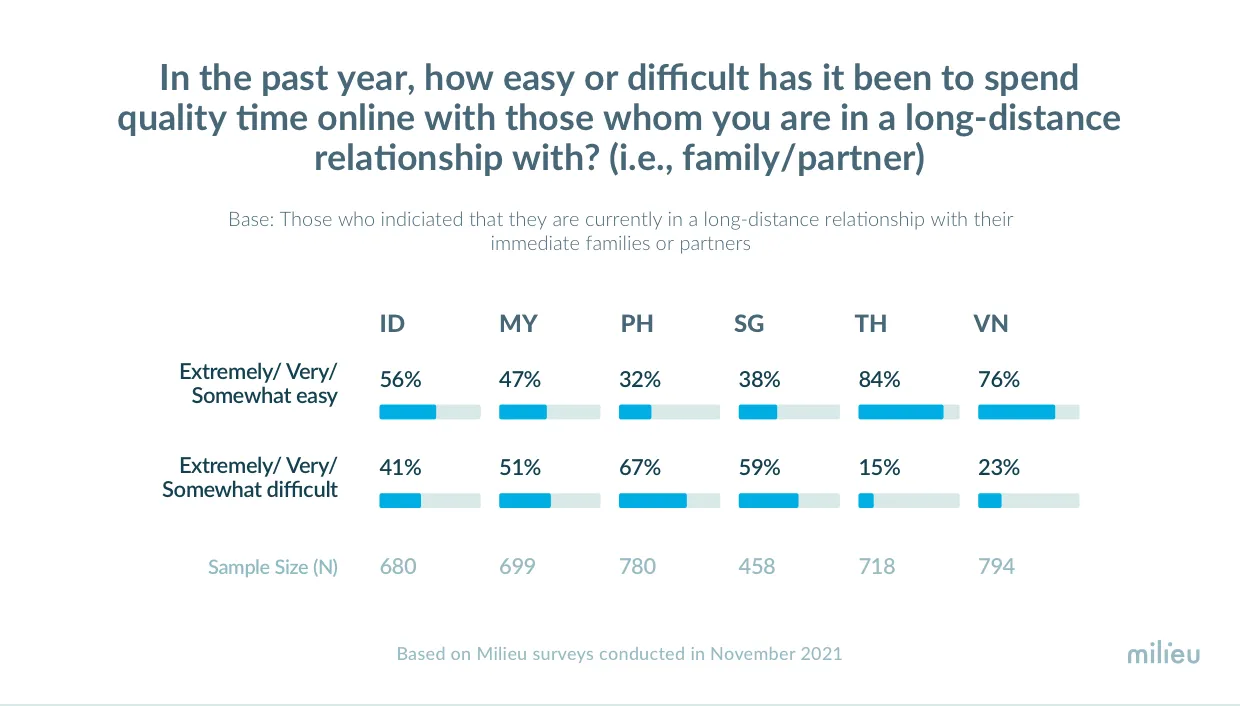
Multi-functional video calls are most important for long-distance communication
Digital companies can get more creative by offering engaging bonding activities. Unsurprisingly, at least 6 in 10 across the six Southeast Asian countries have been bonding with their loved ones by multitasking while on video call, especially in Indonesia (71%) and the Philippines (83%).
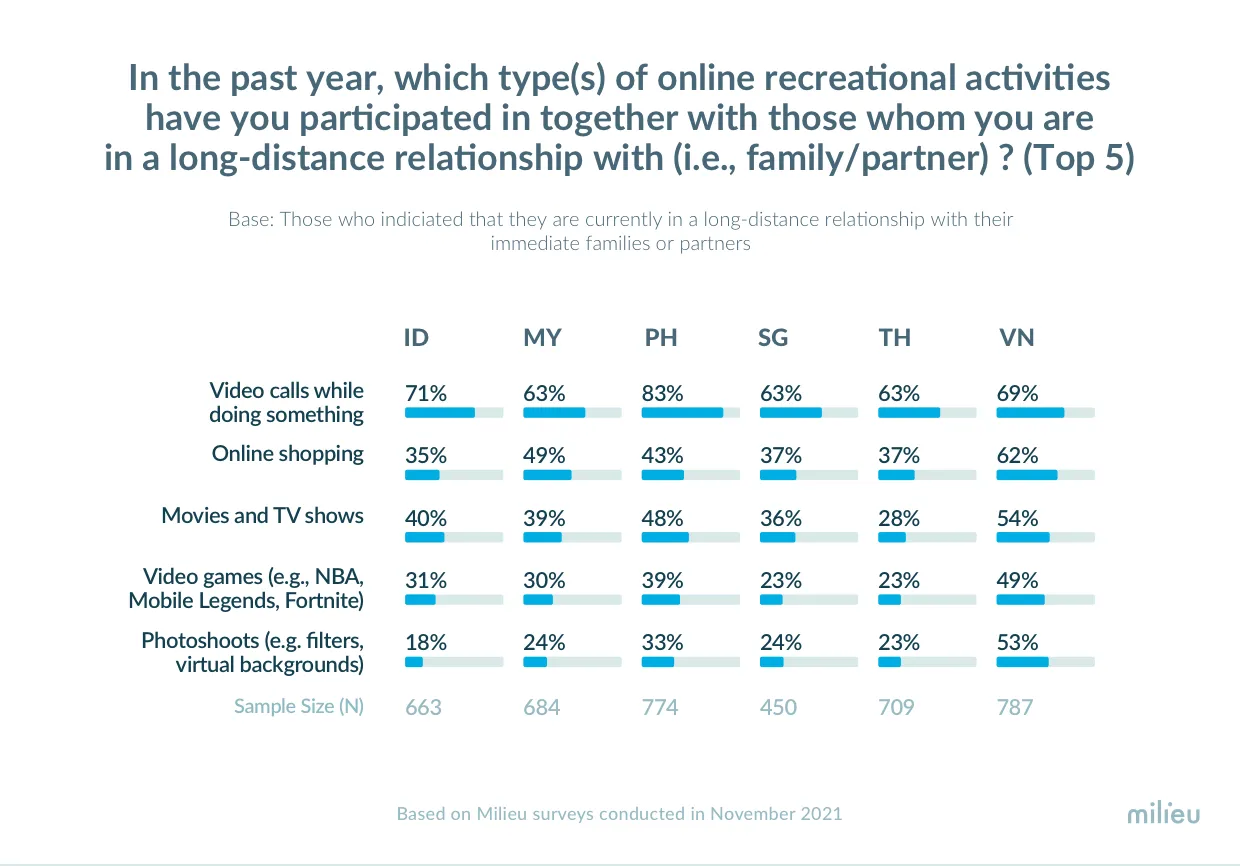
What we found interesting was when asked about the top 5 activities they want to do in the future, there’s generally higher selection across the options compared to what they are already participating in, signaling desire for more functions to support their relationships.
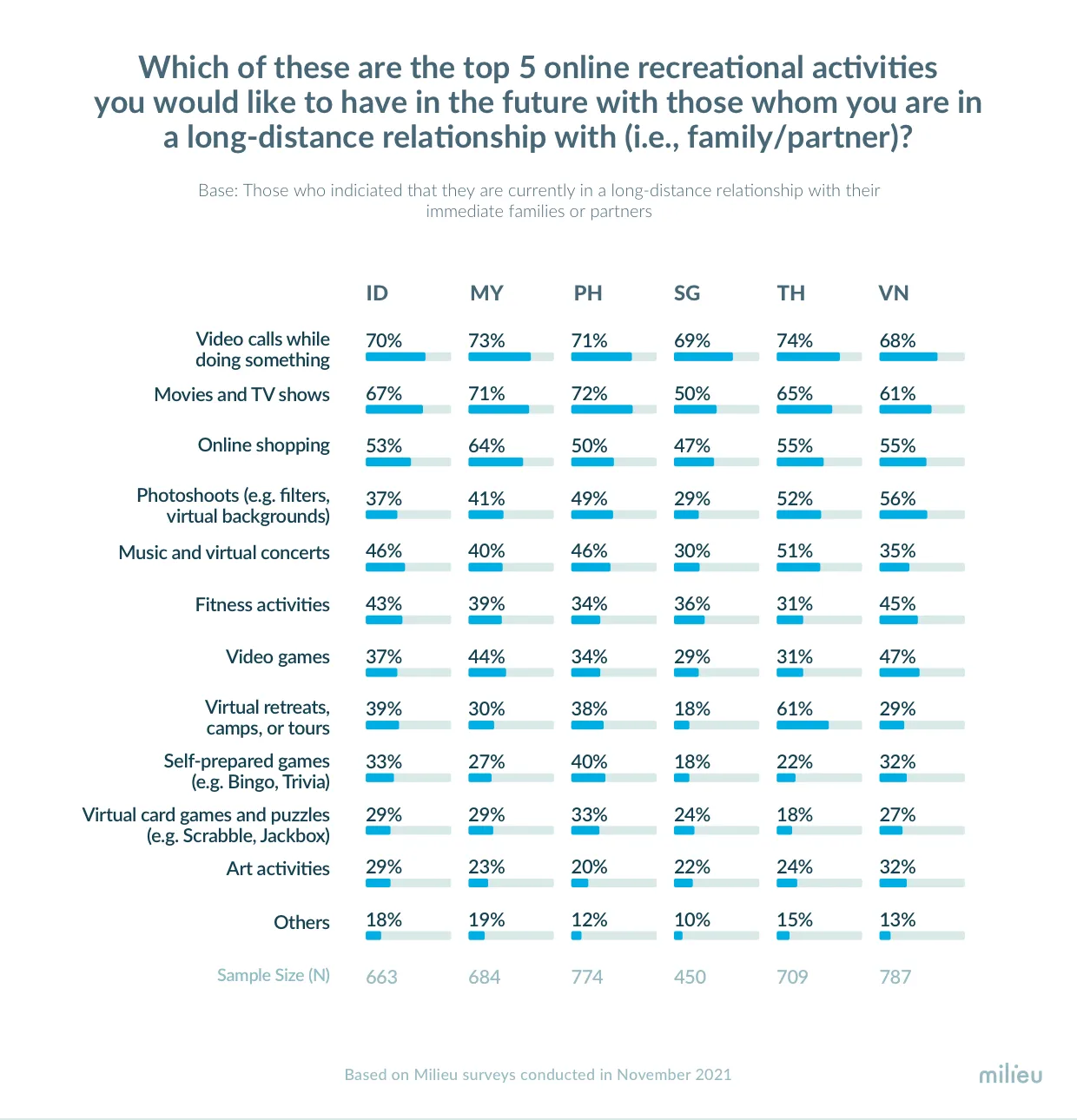
In particular, at least 1 in 2 across all markets want to experience online shopping and watch movies or TV shows together with their loved ones. Out of the 6 countries, preference for online shopping is strongest in Malaysia, Thailand and Vietnam, and watching movies or TV shows is strongest in the Philippines and Malaysia.
Some markets also hope to play more games in the future, and the type of game varies per country. Video games tend to be more favored in Vietnam, Indonesia, and Malaysia, while self-prepared games like bingo and trivia are more popular in the Philippines. Other activities worth considering are fitness, music or concerts, photoshoots, and for Indonesia, Thailand and Philippines, some virtual retreats, camps or tours.
Strong demand for flexible, shared experiences for entertainment activities
Second, for collaborative tools and businesses that can offer such bonding activities, this could mean opportunities of working together to enable more integrated activities. Imagine having an online shopping experience where family members from different locations can view products together and place items in the same cart. A similar idea seems to have been explored before, and has been coined as “collaborative online shopping”, “collaborative e-commerce”, and “online co-shopping.”
This also extends to other entertainment activities like watching videos, listening to music, and playing games. A majority wants to be able to enjoy streaming sites, videos and music together especially in the Philippines, Indonesia and Malaysia. Quite a number also wish for multiplayer games during the call.
Others may also want to have greater flexibility when sharing information online. In all markets, at least one in two individuals who communicate with their loved ones hope that video calling platforms can have multiple screen sharing. This might be useful, for example, when two or more persons are shopping together and want to instantly see the products they are looking at from separate browsers. This sentiment is particularly strong in Thailand and Malaysia.
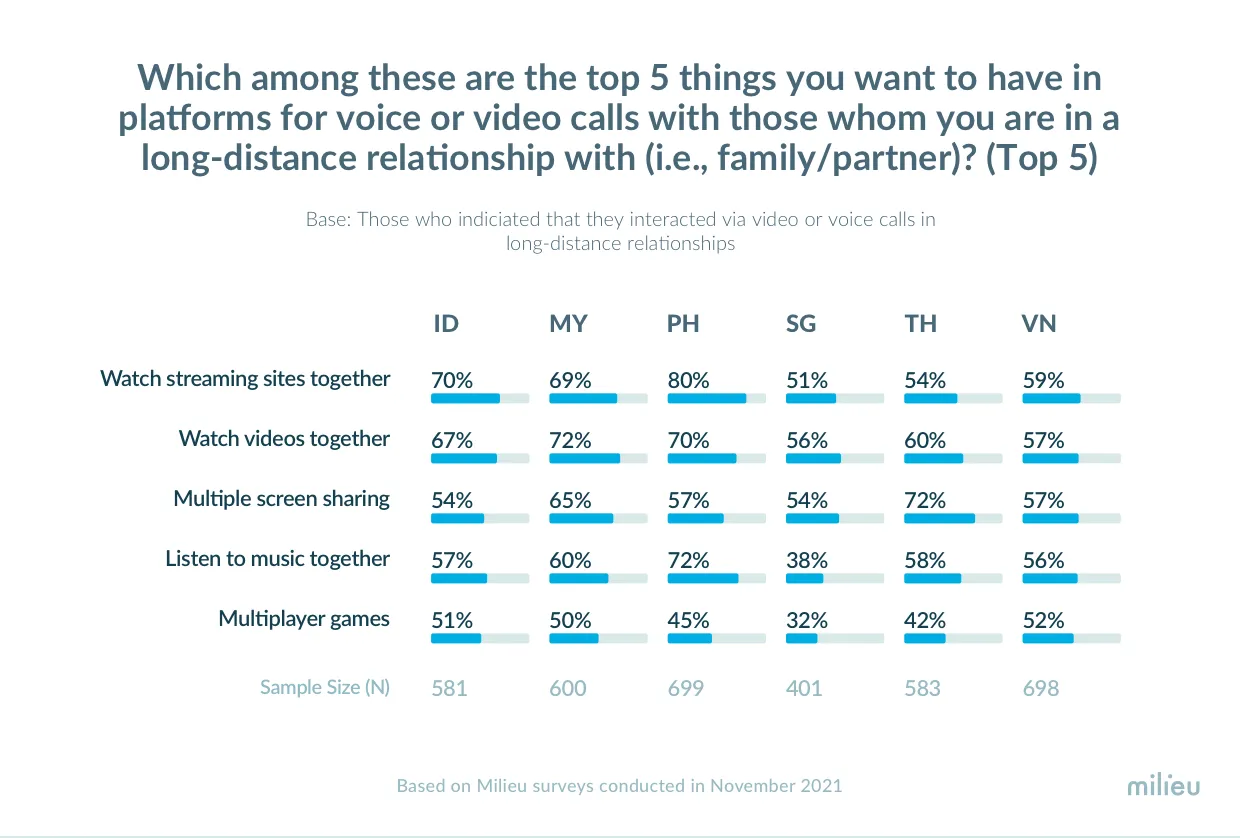
Physical gifts still preferred over e-gifts; preference for local flavours in most countries
Last but not least, businesses can provide more accessibility and options for LDR couples and families in their gift giving. Across all markets, about 31 to 44% indicated that they sent physical gifts to their loved ones in the past years, and about 11 to 45% said they sent e-gifts such as vouchers and e-money.
Most markets would consider giving clothes, vitamins, and food to their loved ones. In Malaysia, Philippines and Singapore, electronics and gadgets are also among the top considerations, while in Vietnam cosmetics and skincare products ranked higher than most other items.
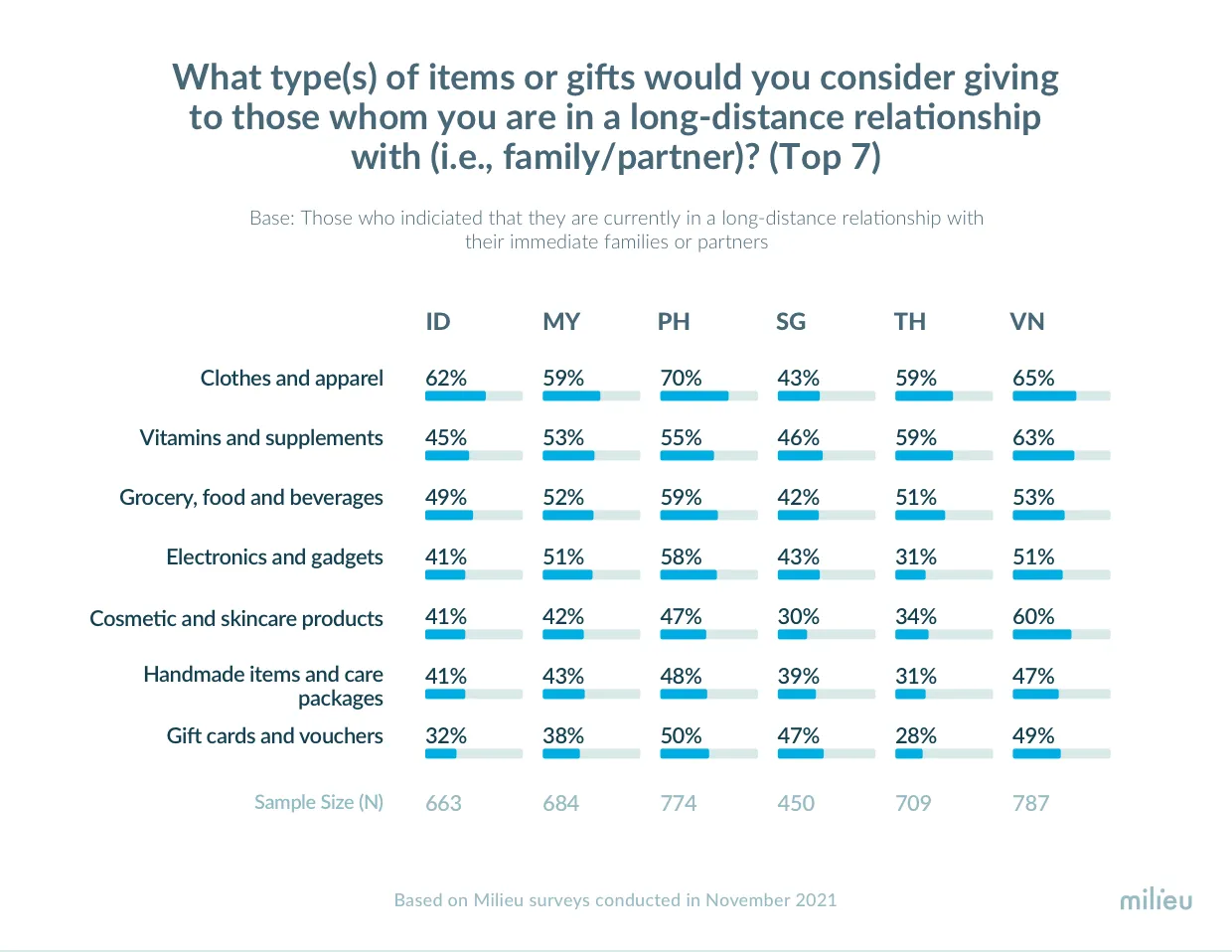
The study showed that items with some local flavour or design were preferred among couples and families, especially those from Vietnam (71%), Indonesia (68%), Philippines (63%), and Thailand (60%). Except for Thailand and Singapore, more than half in each market preferred to make purchases locally in their respective countries and shipping over to their loved ones, while at least 20% preferred buying from where their loved ones’ are via online stores.
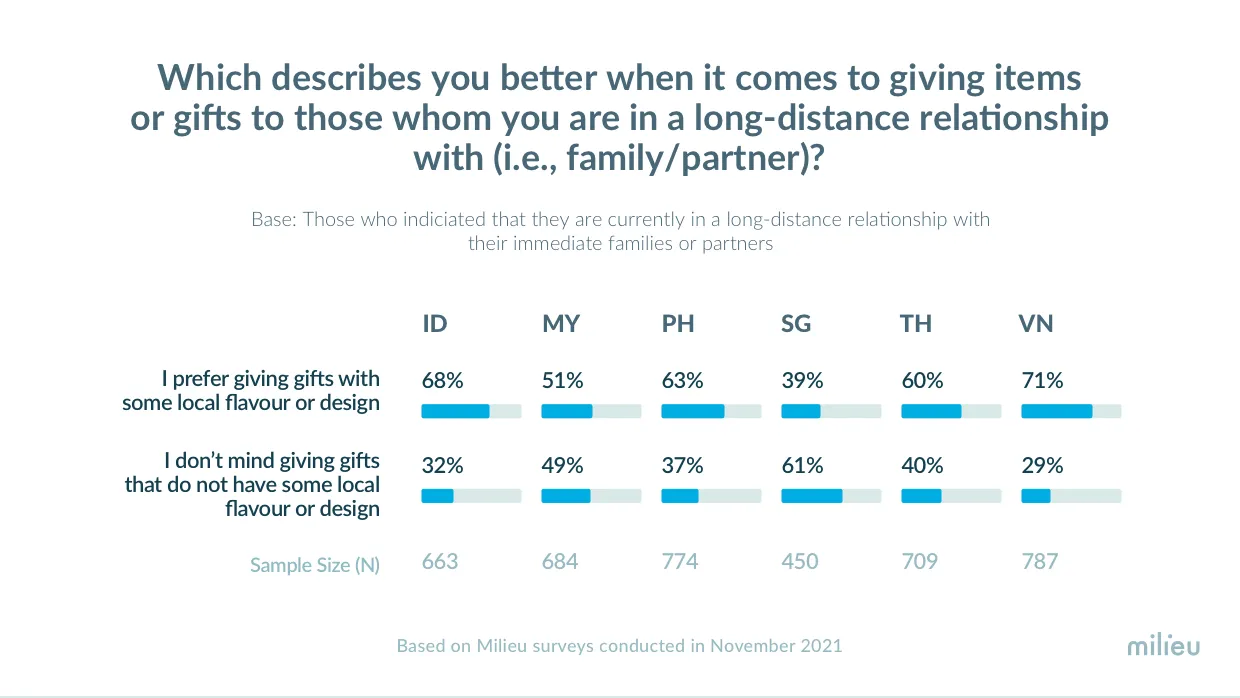
These findings suggest that e-commerce platforms can highlight or provide curated categories for local products to appeal to this segment, and shops that do not specialise in local goods can also include local-inspired designs. All shops in general could consider offering care packages and international delivery options.
Part of something special
Being in an LDR is often thought of as challenging and limiting, but it could also be an opportunity to deepen relationships as couples and families find creative ways to stay connected.
Indeed, among those who said they stayed connected through online calls in the past year, a majority said that they have calls at least weekly. Similarly, a majority of those who bond together online also indicated that they have celebrated at least one special occasion with their loved ones in the past year, with most citing birthdays.
In providing more options for LDR couples and families, businesses are also opening more ways in which loved ones spend their special moments together. In some sense, it is also trying to be part of something special for them, one that they can surely appreciate and remember.
To view the full report, please feel free to reach out to us at reports@mili.eu
.avif)





